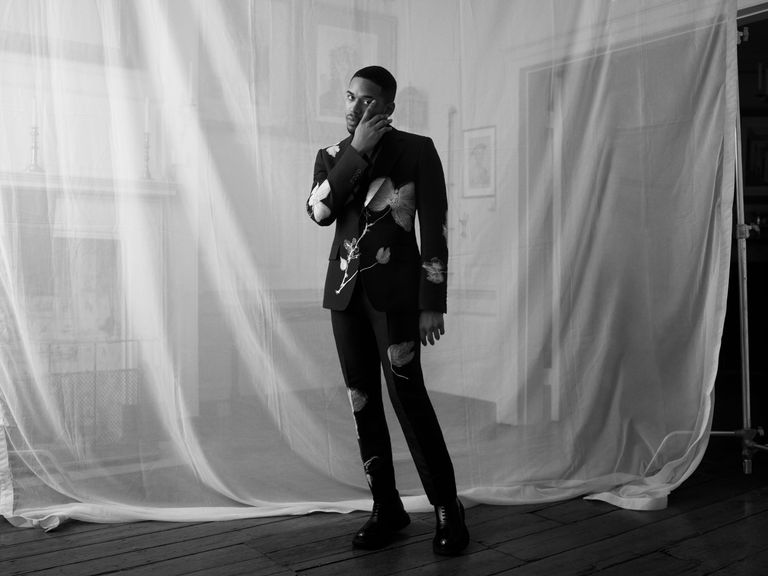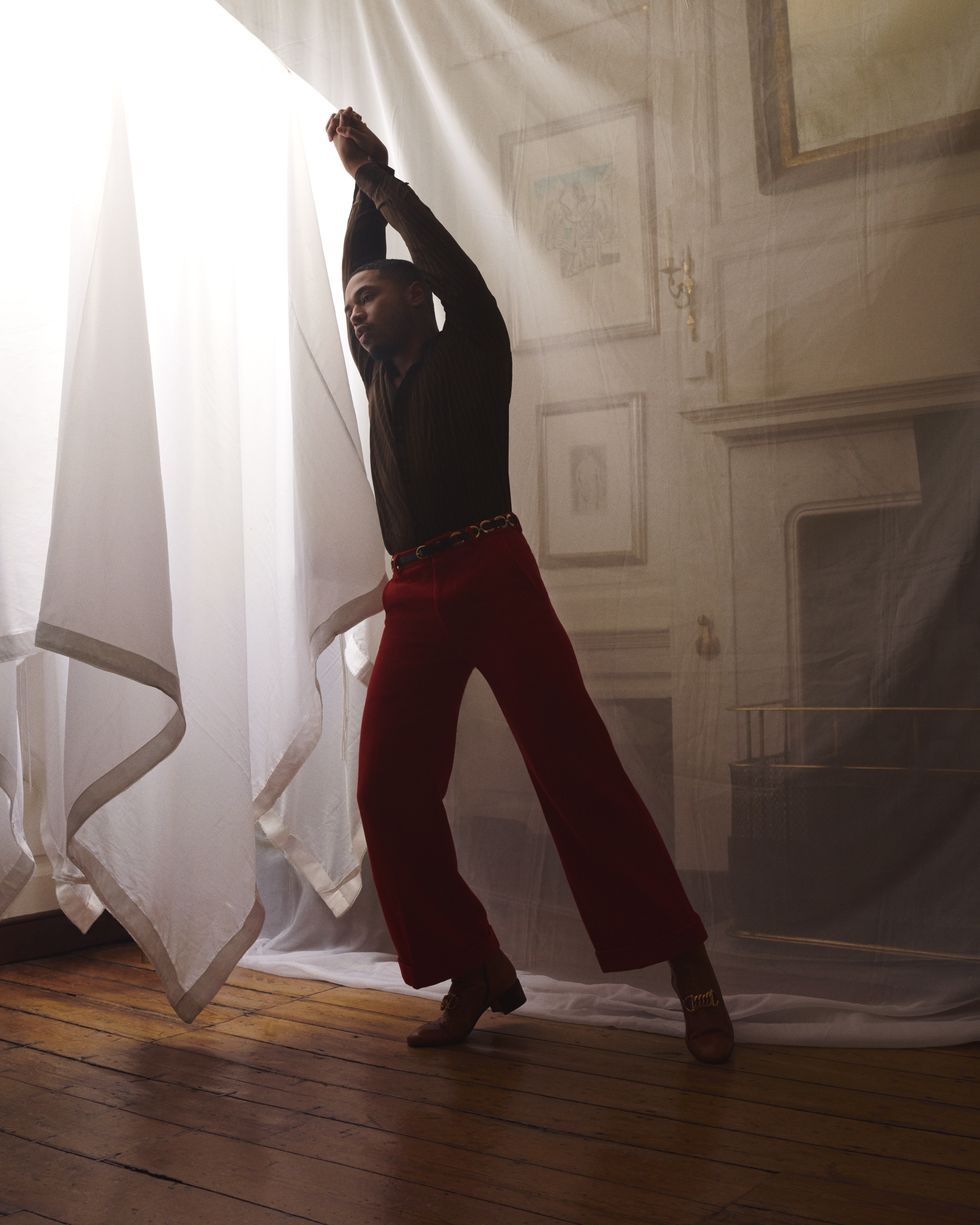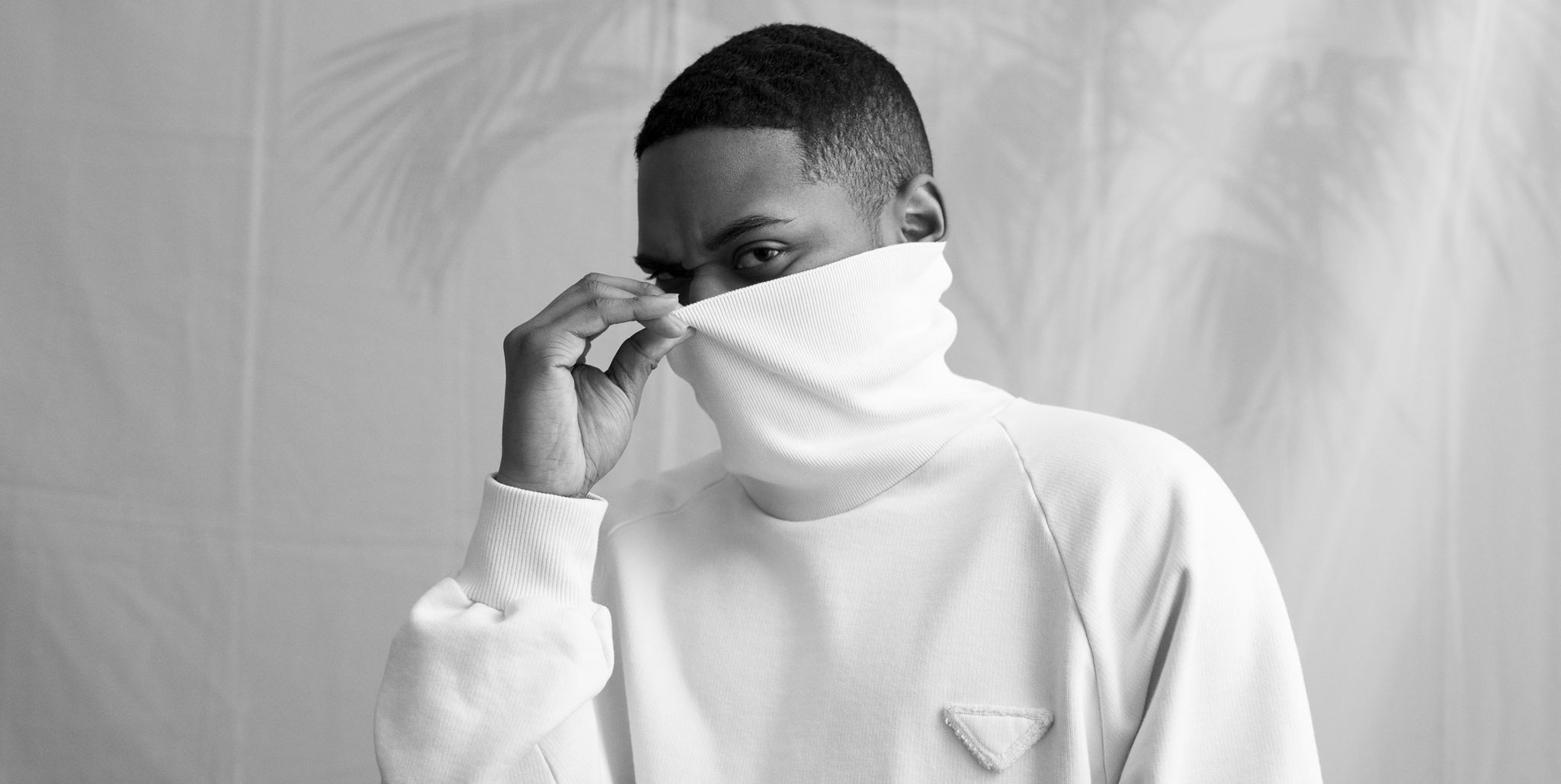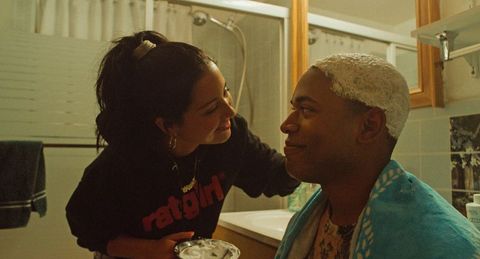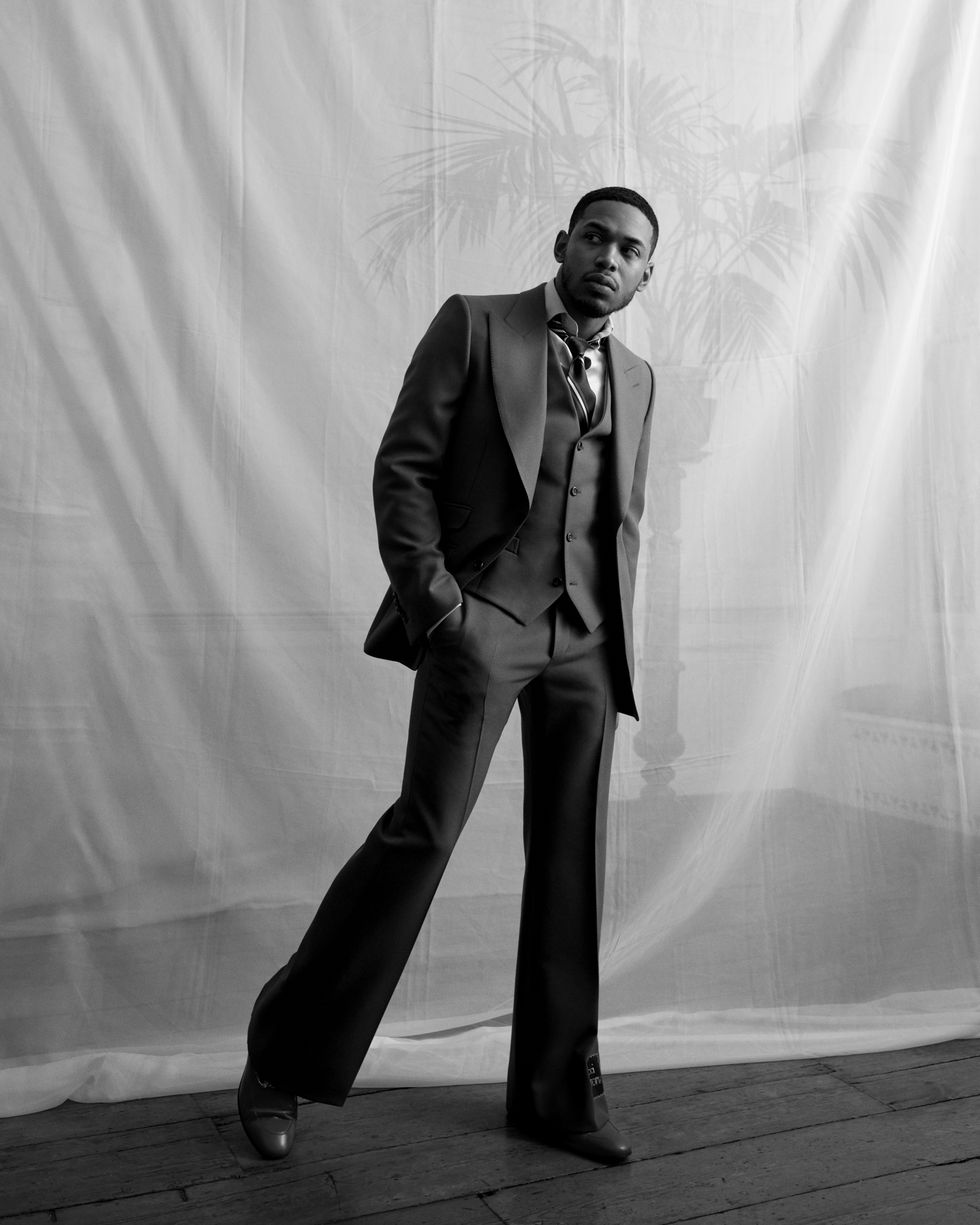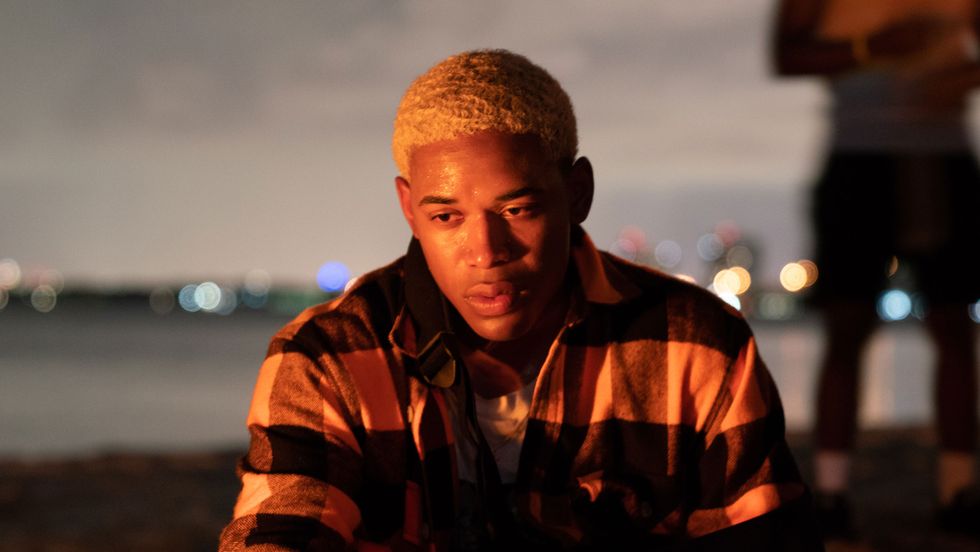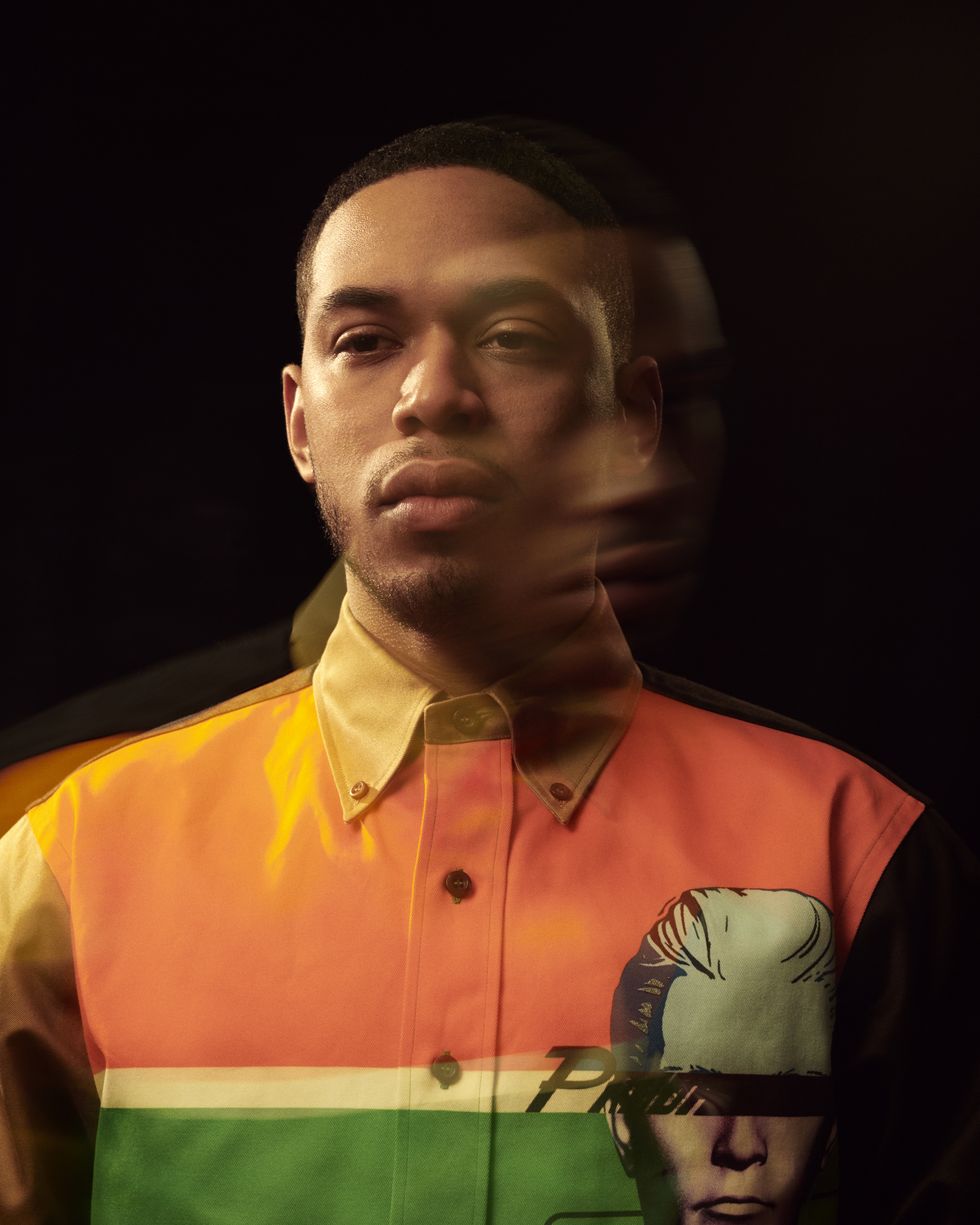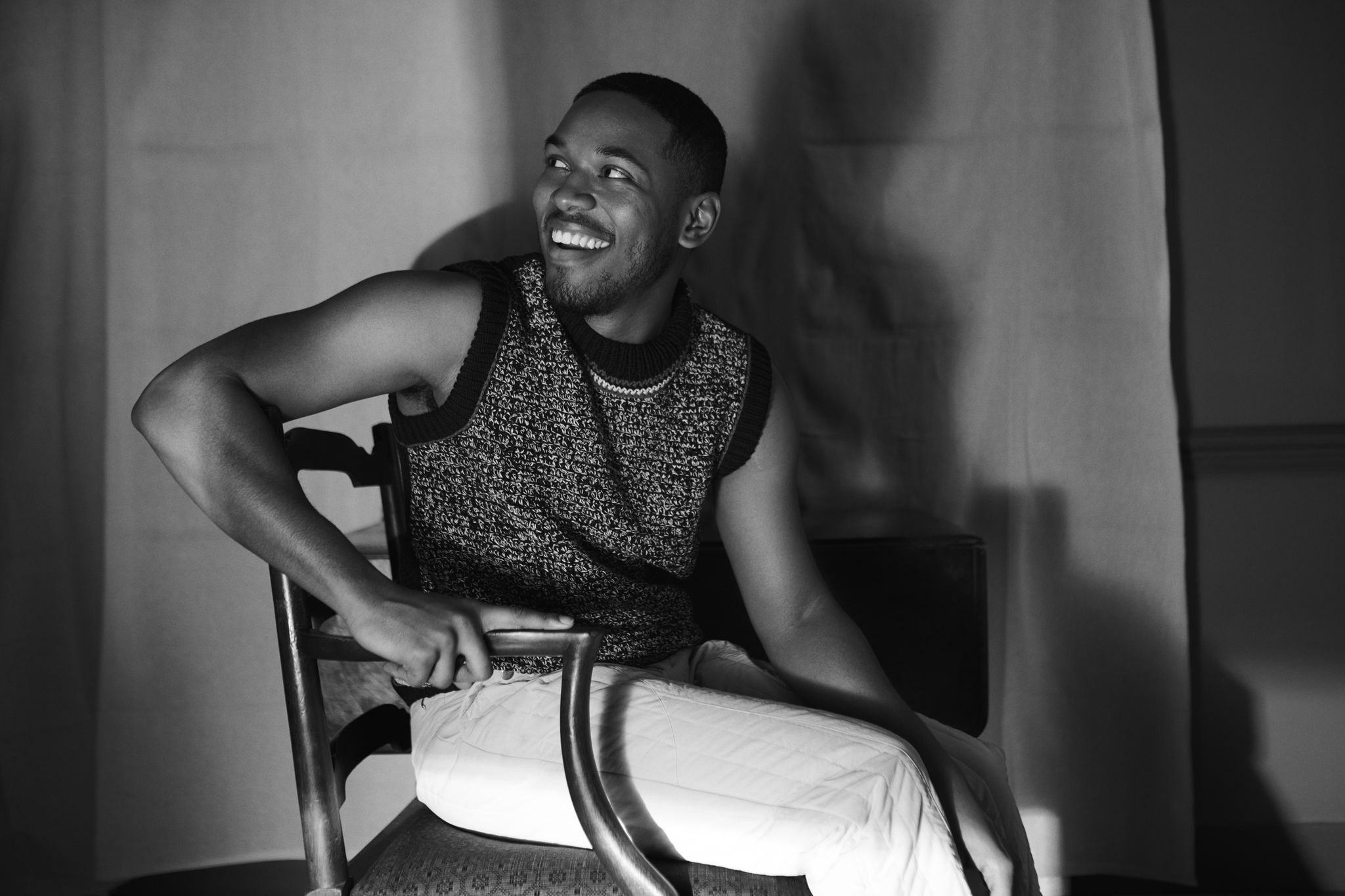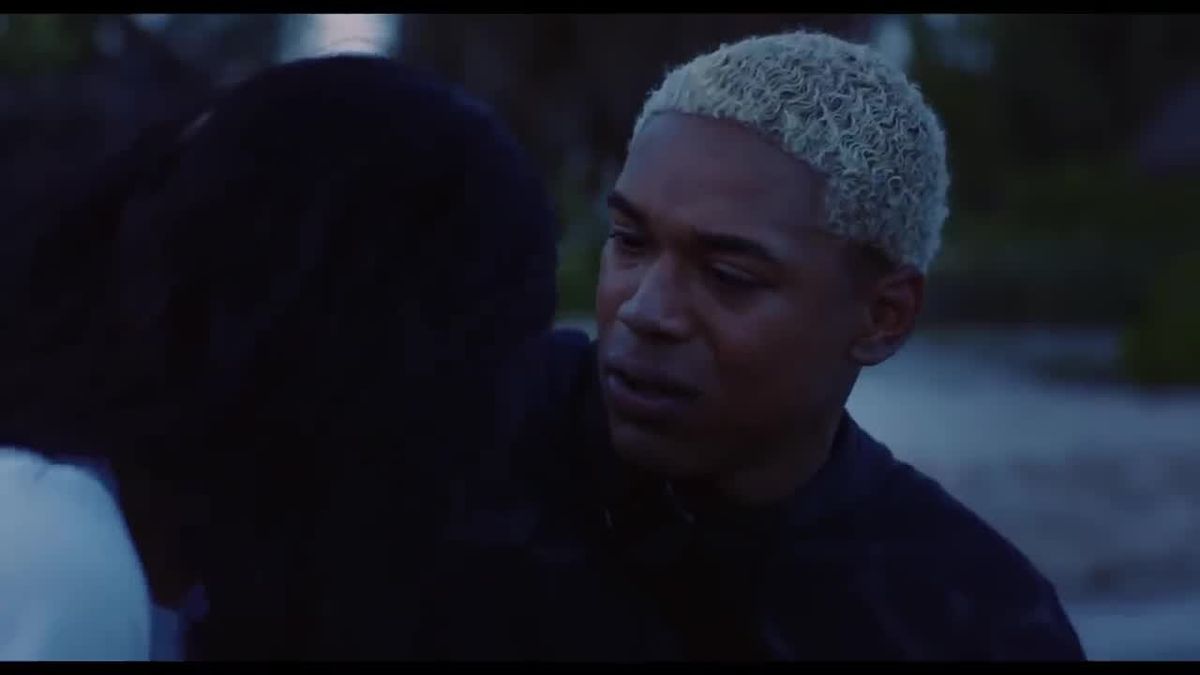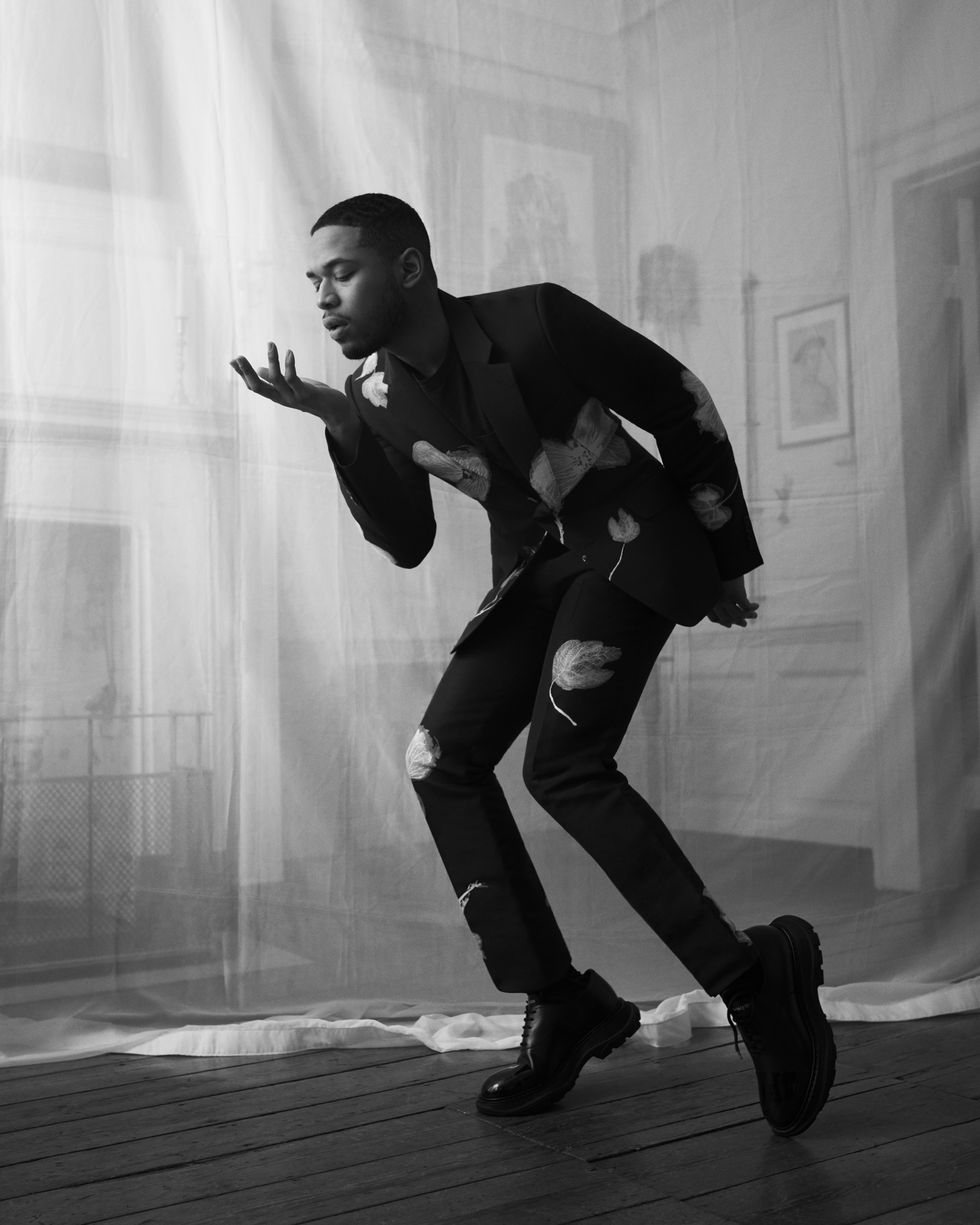Kelvin Harrison Jr is not the kind of actor who slinks out of premieres before the film starts. The 25-year-old grew up in the Garden District of New Orleans, a neighbourhood of historic mansions where the trees are festooned with colourful beads during Mardi Gras, and he spent his entire childhood on-stage, playing the trumpet in jazz school and singing in church.
His father, Kelvin Harrison Sr, is a classically trained jazz musician and his mother, Shirlita, was a dancer and jazz vocalist. The Harrison name carries cachet in New Orleans's music community, and from a young age Harrison's parents groomed their son to follow them into the family business. So he long got over any awkwardness about watching himself perform.
And yet, the last time he watched Waves, his second collaboration with 31-year-old director Trey Edward Shults in which he plays high school wrestler Tyler, he felt deeply uncomfortable. It wasn’t being confronted with his own face, 20-feet high, that was the problem. The problem was that he was on a date.
He hastens to clarify that going to see a film he stars in wasn’t his idea, and he did try to warn the girl that it wouldn’t end well, but his friends said to just go with it. So he went with it. Which is how he found himself in a cinema in New York, watching himself sweat, bleed, scream and cry in a 135-minute emotional car crash. It wasn’t a first date, but still.
Things got weirder when the cinema-goer to Harrison’s left spilled his drink, and turned to apologise only to discover that the man having a breakdown on-screen was now covered in his iced tea. When the film eventually finished – the romance now somewhat faded – Harrison and his date walked out onto the street together. He took one look at her stricken face before telling her, “Trust me, I’m more traumatised than you.”
That was the fourth time he had seen the film. And the last. “I can’t do it again," he says. "Sorry mom.”
Waves is categorically not a date film, even if you aren’t in it. It is a tragedy told in two parts: one where the story gathers strength and crashes; the other where it spreads out slowly after the wave breaks. It follows a black middle-class family living in South Florida led by Tyler’s domineering father, Ronald (Sterling K. Brown), who weighs on his stepmother Katherine (Renee Elise Goldsberry) and watchful younger sister, Emily (Taylor Russell).
This tension is familiar for Harrison, it’s just that he was a trumpet player with a pushy father instead of a wrestler with one. As a young man, Harrison Sr trained under Ellis Marsalis, of the Marsalis Family – the “first family of jazz” – who taught him the saxophone. Harrison Sr later became a music instructor at the University of New Orleans and he brought that teaching urge home, dedicating years to coaching his son on the trumpet, piano and singing, as he pushed for Harrison to achieve the success he never quite had. Throughout his youth, Harrison attended jazz classes after school, then would have to practice in the evenings when he finally got home, as well as all day Saturday. Sundays, he played in church. In the summer, he went to three different jazz camps. “It felt like punishment,” Harrison says. “My dad did know what he was talking about, it’s just he never considered how I felt about it.”
In hindsight, however, it was the perfect preparation for Waves. Though Harrison plays a wrestler, Tyler, rather than a musician, the pressure exerted on him by his on-screen father, Ronald, is just as great. He spends his mornings weightlifting and running on Ronald’s orders, his nights escaping by drinking around bonfires until he passes out. When Tyler suffers a scholarship-ending shoulder injury, he feels he cannot let his father down. His denial sets of a tragic chain of events that send shock waves through his family.
Harrison hears people crying in the cinema while watching Waves. He knows that you don’t have to have been a failed wrestler to identify with a broken family. “We see narratives that aren’t our own but that we can see parallels in,” he says. We meet on one of those December afternoons where the light has already dimmed from the sky by four o’clock. Harrison, sat at a dining table in the attic room of a Soho townhouse, is zipped tightly into a tracksuit top, his puffed chest evidence of his physical transformation he underwent to play a high school wrestling champion. His voice is deep and unhurried, but when he gets excited his words tumble out and he leans forward, almost coming out of his chair, with eagerness. When he discusses heavy subjects he often makes a joke, as though concerned not doing so might bring the mood down.
The night before we meet, Harrison had stayed up until five in the morning (part New York-to-London jet lag, part young-man-in-a-new-city excitement) but he moves through the room with a balletic energy, the heels of his boots tapping on the wooden floor in time with the Fleetwood Mac’s ‘Dreams’, which hums through the wall. He starts to tell me where he had been, then stops. It’s one of many stories which he retreats from, grinning while saying, “I’m going to get in trouble for this”. Still, he hovers around the subject, as though unable to help himself from spilling.
Waves is not exactly Harrison’s story, but it is one that wouldn’t exist without him. The film's writer-director, Trey Edward Shults, first conceived of the idea when he was in high school, but it was after he worked with Harrison on his subdued arthouse horror film, It Comes at Night, that Waves came out of his drawer again. For months the pair conducted “mini therapy sessions” over text message, the director sharing his experience as a wrestler in high school and his father’s alcoholism, then asking Harrison what sports he'd played, or how other kids saw him in school. “We kept trying to figure out who we were at that moment when we were 17,” Harrison says. “When we’re not men yet but not boys anymore.”
At 17, Harrison also underwent a seismic life shift, albeit one with a rosier outcome than Tyler's, when he accompanied a friend to an audition for sci-fi blockbuster Ender's Game and threw his hat in the ring. He walked out with a part in the film. Later that year, he moved to Los Angeles, without his family and against their wishes. In New Orleans, a career as a musician would have been a comparatively stable choice for Harrison, given his family’s connections and talents. Taking a risk as an actor was a choice that his father couldn’t understand. “Even to this day he still wants me to play music because it’s so much about legacy as a Harrison,” he says. “But he’s not pushing it now.”
Music is a big part of Waves, with one small but evocative moment showing Tyler sitting down to play the piano to an empty room. The soundtrack roots the film in the 2010s, with autotune-infused pop and hip-hop conjuring the life of tail-end millennials in suburban Florida. Against the backdrop of Trent Reznor and Atticus Ross’s unsettling score, there are tracks like Kanye West’s dread-inducing ‘I Am A God’, and pinned to Tyler’s bedroom wall is a poster of West’s album The Life of Pablo. In one scene Emily sits in the bath with her new boyfriend (a brilliantly awkward Lucas Hedges), while a phone dropped into a cup serves as a speaker playing ‘Seigfried’ by Frank Ocean – the artist who used to sport the same bleach blonde buzzcut that Tyler has in the film.
Though these were the artists that Harrison’s peers were obsessed with, the music that he recalls from growing up are the sounds of John Coltrane or Sarah Vaughan. “I couldn’t listen to rap or any of that stuff that’s like ‘Get money! Get girls! I don’t care I’m partying!’” He throws his hands in the air, like he’s in one of the clubs he never visited as a teen.
I ask, given their clear similarities but also differences, how much of him he thinks is in Tyler. “I feel for Tyler as much as any guy might,” he says. “What I think gives [Waves] a personal feel for me is that I do identify with being in a middle-class black home.” It is through this lens that he can understand how his father’s fear of him “taking the wrong path” led to him pushing Harrison toward a career which he could help his son achieve. As Sterling K Brown’s character, Ronald, tells Tyler in one scene, “we are not afforded the luxury of being average.”
Shults did not originally intend to cast a black family in Waves, but having worked with Harrison on It Comes at Night, he decided to shift his focus. The director used their text message exchanges to understand the black experience of growing up a teenage boy in America, changing aspects of the story when Harrison explained how things were in his house. Harrison told Shults about the way his father had softened through raising his sisters, the story of a cousin who threw a brick through his grandmother’s window (aiming for the seat she sat in every day), and about friends who had ended up in prison.
There are many who’d say we don’t need more white directors telling back stories. But Harrison doesn’t feel that way about Waves, having been compelled by how Shults cast him as Joel Edgerton’s son in It Comes at Night, instead of a white actor. “He saw me, truly,” he says. “Rather than just watching me and making judgments.”
The 2017 horror film, which focuses on a two families in a post-apocalyptic world dealing with an unknown threat, in some ways feels like a prequel to Waves, albeit an unusual one. The former billed itself as a horror, though one that built a silent sense of foreboding in place of jump scares. Waves conjures a similar sense of creeping terror, and also centres on a fractured family. Both, Harrison says, are about “our internal paranoia of each other” and “how scared we are of the world”.
Waves is about our inability to tell the people we love how we feel, the pressures our parents put on us, and how to move on from the grief and regrets that weigh on us. Though these ideas are seen through the story of a black family, they are universal. “I don’t care what colour you are or where you came from, parents don’t change."
The relatable nature of Shults’s stories is especially important for Harrison, who recently joked that he, “could be in the Guinness Book of World Records for being in the most slavery pictures.” Having appeared in 12 Years a Slave, The Birth of a Nation, Roots, Underground and Mudbound, Harrison wanted to move the conversation forward and talk about where young black men are today. “These are important stories for people to see to remind them of where we came from, but it becomes the only thing we can do. We’ve grown so much from there,” he says. “I want to talk about where we are now.”
He started saying no to those kinds of offers, aware that it could have meant he stopped working altogether. But then It Comes at Night arrived, bringing with it the opportunity “to be a black person in a genre movie”. That role later earned him a Gotham Award nomination for ‘Breakthrough Actor’. He was also nominated for ‘Best Actor’ at this year's Independent Spirit Awards for Luce, a drama-thriller where he played an adopted son struggling with his heritage.
He played an athlete in Luce, but Waves required a n even more drastic physical transformation. Harrison hated sport in school, but the challenge wasn’t training three times a day, or the thousands of calories he had to consume to bulk up. It was the atmosphere that comes with wrestling, a sport about overpowering someone and exploiting their weaknesses. “My trainer would get angry with me,” he says. “He’d say ‘you’re not going to be able to do it if you’re afraid to hurt someone’.”
As with the rap music which Harrison avoided growing up, the language jarred: “Gym conversations, locker room conversations,” he says. “Everyone is so scared of being soft that we have to make other people feel like objects in order to feel like we have power.” This kind of toxic masculinity churns through Waves like a current: there in the way which Tyler is unable to be vulnerable about his shoulder injury; in how Ronald seeks to break up the relationship between his son and his wife; and most of all in Tyler’s relationship with his unflinching girlfriend Alexis.
Cast as Alexis is Alexa Demie, the cat-eyed actress who played the similarly wily and hypnotising Maddy in HBO’s Euphoria. Tyler has Alexis saved in his phone as ‘goddess’ and he worships her with a steadfastness that turns obsessive. His need to control her results in a scene which ends the first half of the film with such a resolute full stop that several people in the screening I was in audibly gasped.
Harrison says it was crucial that audiences understand how they get to this point, that the story has been a wave towering higher and higher but it must, inevitably, fall. “We felt it’s important that you know that the reason you get to this dark place,” he says. “That you understand the psychology between these two people and how they pushed each other.”
After a wave breaks it fans forward, rapidly at first then seeping further than you think it can go. Here the story turns to Tyler’s sister Emily, and the pain of her brother’s actions like waves hitting the family again and again. Shults has talked about Waves as a diptych, a "panic attack followed by a hug." Harrison’s side of the story is packed with so much emotional turmoil that he says he felt “so exposed” after he finished filming. He had poured so much of himself into the role and “didn’t have the second half of the movie, which is the healing.” When the film wrapped, Harrison moved to New York and suddenly found himself adrift. Being alone in a new city was hard enough, but Waves had revealed issues with his own family that he had never properly dealt with, which now felt like a tide rising above his head. It wasn’t until he finally watched the film's second, cathartic half, that he felt closure.
“He cares so much about the people around him and what they think,” says Taylor Russell, who plays Tyler's sister, Emily. Speaking over the phone, she describes Harrison as her brother. “He’s extremely thoughtful and holds himself up to a very high standard”.
In one emotionally charged scene Emily finds Tyler throwing up and crying on the floor at home. When she hugs him he breaks down in her arms in the yellow light of their shared bathroom. “When I walked into that scene I was really shocked about his state,” she says. “A lot of the time he would bring an energy that I wasn’t expecting. When I saw the movie I couldn’t believe what Kelvin had done because there’s so much there that I never saw. He made Tyler so emotional, like a little bird in a lion’s body.”
Last week it was announced that Harrison had earned an EE Rising Star BAFTA nomination, an award which numbers Tom Holland, John Boyega and Daniel Kaluuya among its past winners. When I ask how it feels to have earned the success his father always wanted for him, he is quiet, then answers cagily. “I try not to be happy about stuff like that because it can distract you from why you do the work in the first place, but it makes me feel good that people I respect think I’m making good choices.”
When a wave ends it begins again. It’s a cycle that plays over and over, no matter how strong the swell that came before. This belief that life carries on is reassuring amid the grief which anchors Waves. “We all have a burden we carry,” Harrison says. “I think people feel less alone when they watch this movie.”
Waves is released in UK cinemas on 17 January. Vote for Kelvin Harrison Jr in the EE Bafta Rising Star Award at ee.co.uk/bafta.
Fashion director: Catherine Hayward | Fashion assistant: Dan Choppen
Photographer: Phil Dunlop | Photographer's assistant: Thomas Skinner
Casting: Tom Macklin | Art direction: Lisa Barlow
Grooming: Paul Donovan
